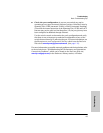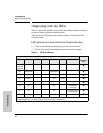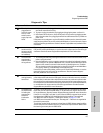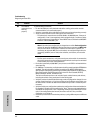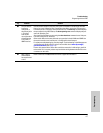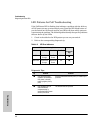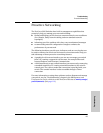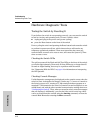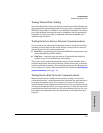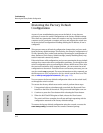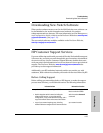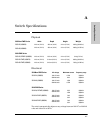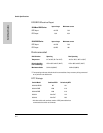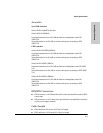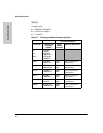
4-11
Troubleshooting
Hardware Diagnostic Tests
Troubleshooting
Testing Twisted-Pair Cabling
Network cables that fail to provide a link or provide an unreliable link between
the switch and the connected network device may not be compatible with the
IEEE 802.3 Type 10Base-T, 100Base-TX, or 1000Base-T standards. The twisted-
pair cables attached to the switch must be compatible with the appropriate
standards. To verify your cable is compatible with these standards, use a
qualified cable test device.
Testing Switch-to-Device Network Communications
You can perform the following communication tests to verify the network is
operating correctly between the switch and any connected device that can
respond correctly to the communication test.
■ Link Test—a physical layer test that sends IEEE 802.2 test packets to any
device identified by its MAC address
■ Ping Test—a network layer test used on IP networks that sends test
packets to any device identified by its IP address
These tests can be performed through the switch console interface from a
terminal connected to the switch or through a Telnet connection, or from the
switch’s web browser interface. For more information, see the Management
and Configuration Guide, which is on the ProCurve Web site at www.hp.com/
go/procurve/manuals, (See page 1-13).
Testing End-to-End Network Communications
Both the switch and the cabling can be tested by running an end-to-end
communications test—a test that sends known data from one network device
to another through the switch. For example, if you have two PCs on the
network that have LAN adapters between which you can run a link-level test
or Ping test through the switch, you can use this test to verify that the entire
communication path between the two PCs is functioning correctly. See your
LAN adapter documentation for more information on running a link test or
Ping test.



